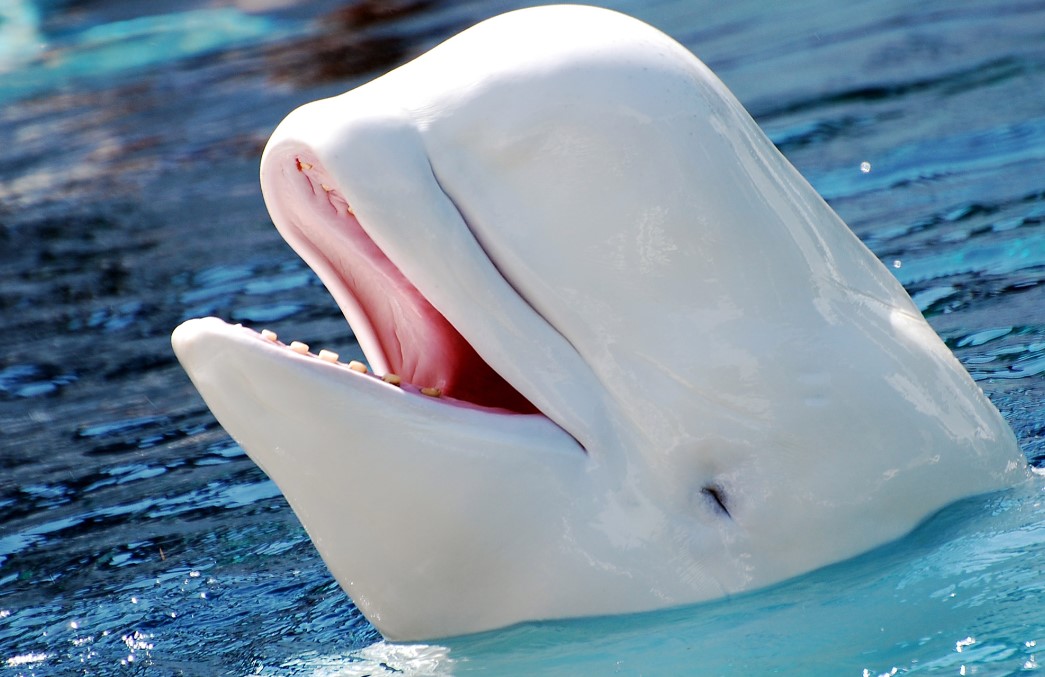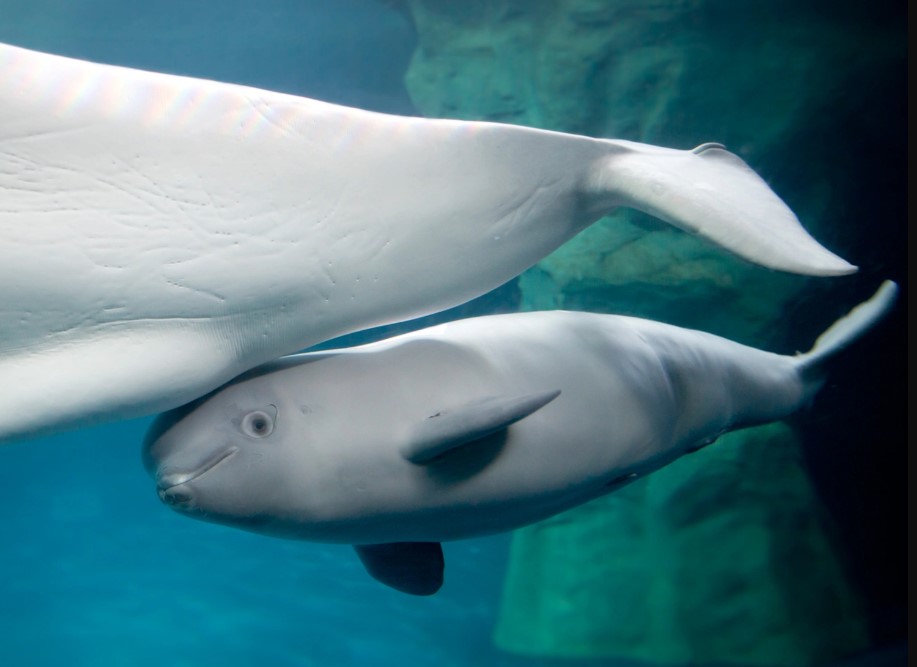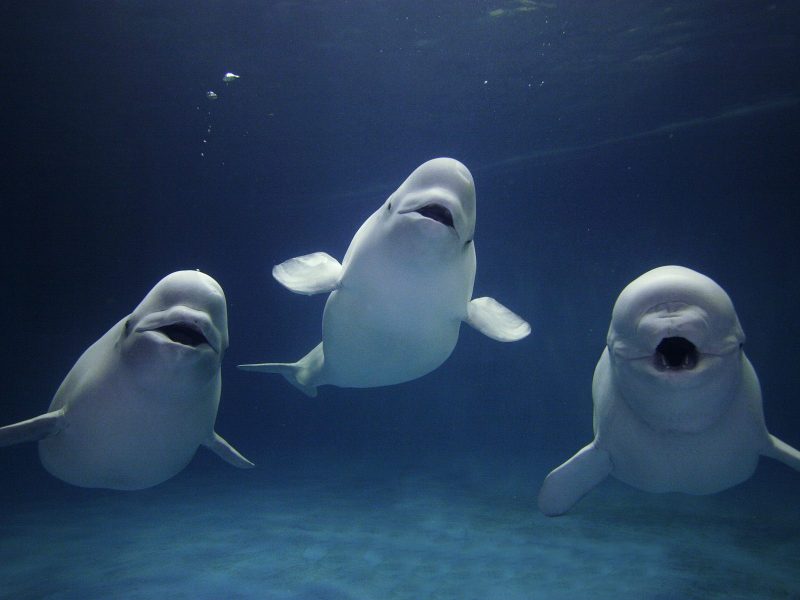Free the Ocean Blog
5 Fun and Interesting Facts about Beluga Whales
Beluga whales are known for their distinctive white color and friendly demeanor, but there’s so much more to these marine mammals than meets the eye. Join us as we dive into five fun and informative facts about these fascinating creatures.

1. Musical Maestros
Beluga whales are sometimes referred to as the “canaries of the sea” due to their impressive vocal range. They can produce a wide variety of sounds, including clicks, whistles, and chirps, which they use for communication and echolocation. Some of the vocalizations can even be heard above water, making them one of the most vocal marine mammals. In captivity, belugas have been known to mimic human speech, which further demonstrates their extraordinary vocal abilities.
2. The Chameleons of the Sea
Beluga whales are born with a dark gray color that gradually fades to white as they mature. This transformation usually takes about five to eight years, and it’s not just for aesthetics. The white coloration provides them with excellent camouflage among the Arctic ice, making it easier for them to evade predators like polar bears and orcas.

3. Masters of Flexibility
Belugas are known for their impressive flexibility, which is partly due to their lack of a dorsal fin. This unique feature allows them to maneuver easily through the Arctic’s icy waters and tight spaces. Additionally, belugas have a highly flexible neck, thanks to their seven unfused cervical vertebrae. This allows them to move their heads in a wide range of motion, unlike other cetaceans who have fused neck vertebrae, enabling them to easily locate and capture prey.
4. Social Butterflies
Beluga whales are highly social animals, often traveling in groups called pods. These pods can consist of a few individuals to hundreds of whales, depending on the availability of food and other factors. Within these pods, belugas display a complex social structure, with strong bonds formed between members. They are known to engage in playful behaviors such as chasing, touching, and even blowing bubbles!
5. Underwater Gardeners
Beluga whales play an important role in maintaining the health of their Arctic ecosystem. They feed on a variety of fish, invertebrates, and crustaceans, which helps control the populations of these species. Interestingly, while foraging for food, belugas stir up the ocean floor, redistributing nutrients and promoting the growth of various plants and algae. This, in turn, supports the growth of other marine life, showcasing the interconnectedness of our planet’s ecosystems.

Beluga whales are truly remarkable creatures, full of surprises and fascinating behaviors. As we learn more about these enigmatic marine mammals, we can better appreciate their importance in our world’s oceans and the need for their conservation.





